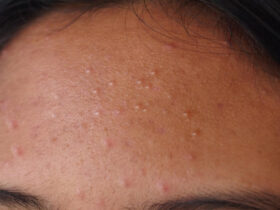Cholesterol and Headaches: Is There a Connection?
Cholesterol is a waxy substance naturally produced in the body and vital to maintaining overall health. can high cholesterol cause headaches headache levels be dangerous? high cholesterol headache increases heart disease, stroke, and other cardiovascular issues.
Preventing life-threatening conditions requires controlling cholesterol.
But did you know that headaches and high cholesterol might also be linked to headaches?
Several studies have linked elevated cholesterol levels to headaches. This essay will explain this link and how to treat headaches and high cholesterol.
What is High Cholesterol?
At its core, high cholesterol means too many lipids (fatty substances) circulating through your bloodstream. Low-Density Lipoprotein (LDL), or “bad” cholesterol, can build up in your arteries and create blockages.
Heart disease and stroke can result from high bad cholesterol. “Good” cholesterol, HDL, removes excess fat from the bloodstream.
The goal is typically to minimize LDL particles while maximizing HDL particles. Several factors can contribute to elevated lipid or “cholesterol” levels:
– Genetics – Age
– Diet – Exercise habits
– Smoking The American Heart Association recommends adults aged 20 years or older get their cholesterol checked every four to six years regardless of symptoms.
The Link Between High Cholesterol Levels and Headaches
cholesterol headache can cause headaches in people with hyperlipidemia, according to NIH research. This link’s method is unknown. High blood cholesterol may inflame and damage brain blood arteries that deliver oxygen and nutrients.
When these vessels become damaged, they can lead to migraines or other headaches. cholesterol headache cure may disrupt brain neurotransmitters, causing headaches.
High lipid levels may induce hypertension, type 2 diabetes, and headaches.
Maintaining good lipid levels is important for overall health, but additional research is needed to determine if excessive cholesterol causes headaches.
What is High Cholesterol?
Some meals include cholesterol, a waxy liver product.
While it’s needed for proper cell function, high cholesterol headaches levels can be dangerous for your health. high cholesterol headaches have a total cholesterol level of 240 mg/dL or higher.
Cholesterol can be divided into low-density lipoprotein (LDL) and high-density lipoprotein (HDL). LDL, the “bad” cholesterol, can build up in your arteries and cause blockages, leading to heart disease and stroke. However, HDL is known as “good” cholesterol because it helps remove LDL from your blood.
How Does High Cholesterol Affect the Body?
Atherosclerosis, which narrows and hardens arteries, can result from high LDL levels.
This narrowing restricts blood flow throughout the body, which increases your risk of heart disease or stroke.
Saturated and trans fats can raise blood cholesterol, even if your liver produces all the cholesterol you need. Obesity, smoking, diabetes, lack of exercise, age (cholesterol levels rise), and family history/genetics also contribute to high cholesterol.
The Common Causes of High Cholesterol
High blood pressure: Hypertension damages arterial walls, producing inflammation and plaque formation. Smoking: Triglycerides are higher in smokers.
Obesity: Overweight people consume more saturated fat, which raises their cholesterol risk. Diet: Saturated fat overload
may also increase cholesterol levels.
Too much cholesterol in the diet can overload the liver, causing an imbalance.
Inactivity: Exercise helps to raise HDL and lower LDL, whereas a sedentary lifestyle does not.
Age: As you age, your risk of developing high cholesterol cause headaches increases. Genetics: You may have inherited genes that cause your liver to produce too much cholesterol or remove too little LDL from your blood.
Headaches and High Cholesterol
The Relationship between High Cholesterol and Headaches
Many people may not be aware of the connection between high cholesterol headache levels. However, studies have shown that there is indeed a correlation between the two.
High cholesterol levels can lead to plaque buildup in the blood vessels, which can cause them to narrow or even become blocked. This can lead to decreased blood flow to the brain, resulting in headaches.
Additionally, research has shown that high LDL (low-density lipoprotein) cholesterol levels, also known as “bad” cholesterol, can cause inflammation. This inflammation can also contribute to headaches as well as other health problems.
The Different Types of Headaches Caused by High Cholesterol
cholesterol headache levels may cause different types of headaches. One type is a migraine headache, a severe headache often accompanied by other symptoms such as nausea and sensitivity to light or sound. Migraine headaches have been linked to high levels of LDL cholesterol.
Another type of headache associated with cholesterol headache is a tension headache. This type of headache tends to be milder than migraines but can still be painful and interfere with daily activities.
Tension headaches are typically caused by muscle tension in the neck and shoulders, which can occur due to poor blood flow caused by high cholesterol. It’s important to note that not all headaches are caused by high cholesterol symptoms headache levels, but if you experience chronic or severe headaches along with other symptoms such as dizziness or confusion, it’s essential to speak with your healthcare provider for proper diagnosis and treatment options.
Other Symptoms of High Cholesterol
The Silent Killer
high cholesterol headaches are often called “the silent killer” because it can go undetected for years. This is because high cholesterol headaches do not typically cause any noticeable symptoms. However, several subtle signs may indicate elevated cholesterol levels in the body.
The Body’s Warning Signs
One of the most common symptoms associated with cholesterol headache cure is chest pain or discomfort, which can radiate into the arms or back. Another common symptom is shortness of breath, especially during physical activity. Individuals with cholesterol headache cure may also experience numbness or tingling in their extremities due to poor circulation.
But what about headaches? While headaches aren’t usually considered a primary symptom of high cholesterol, they can be related.
Headaches caused by high cholesterol headaches are likely due to reduced blood flow to the brain. This lack of blood flow can cause mild to severe headaches that may feel like migraines or tension headaches.
Connecting The Dots
It’s important to note that experiencing these symptoms doesn’t necessarily mean a person has high cholesterol. However, suppose several of these symptoms are present alongside elevated levels of LDL (the “bad” form of cholesterol) and low HDL (the “good” form). In that case, seeking medical attention and making lifestyle changes is essential.
While headaches aren’t commonly associated with high cholesterol, they could be related due to reduced blood flow to the brain. So if you’re struggling with frequent headaches alongside other common symptoms like chest pain and shortness of breath, get your levels checked out by a healthcare provider as soon as possible – it could save your life!

Treatment Options
Managing High Cholesterol
high cholesterol headaches may be managed with medication and lifestyle changes. Your doctor will assess your level of risk based on your age, family history, and other underlying conditions before prescribing a medication.
Statins are the most commonly prescribed drugs for high cholesterol. They work by blocking a substance that the liver needs to produce cholesterol.
This leads to lower levels of total and LDL (bad) cholesterol. However, statins may cause side effects such as muscle pain, so it is important to follow up regularly with your doctor if you experience any adverse effects.
Along with medication, lifestyle changes such as eating healthy foods, exercising regularly, and quitting smoking can help lower cholesterol headache symptoms levels. A shift towards a Mediterranean-style diet that is rich in fruits, vegetables, whole grains, nuts, and seeds, has been shown to reduce harmful cholesterol levels in research studies.
Relieving Headaches
Headaches caused by high cholesterol and headaches can be relieved using over-the-counter medications such as aspirin or ibuprofen, which alleviate pain and decrease inflammation in the body. In addition to medication therapy for headaches, treatment options include relaxation techniques like deep breathing exercises or meditation, which have been linked to headache relief by reducing stress levels. Physical therapy, such as massage or chiropractic treatment, can help alleviate headaches related to muscle tension or spinal issues.
Lifestyle changes are particularly effective in preventing headaches, especially those related to high blood pressure. These modifications include regular exercise (preferably low impact) and good sleep hygiene habits like keeping a consistent sleep schedule and reducing screen time before bed.
Prevention
Food choices:
Diet plays a significant role in managing cholesterol levels in the body. One of the practical ways to prevent high cholesterol and headaches is to make healthy food choices. Incorporating fiber-rich foods, such as fruits and vegetables, can help reduce cholesterol levels.
It is crucial to limit the intake of saturated and trans fats found in fatty meats, butter, and processed foods. Foods like nuts, oily fish, avocadoes, and olive oil contain healthy fats that can help reduce cholesterol levels.
It is also essential to read labels carefully before purchasing processed or packaged foods. Some products may contain unhealthy fats or added sugar, contributing to high cholesterol levels.
The American Heart Association recommends limiting daily sodium intake to less than 2,300 milligrams per day for adults. Eating a diet that promotes heart health is one of the best ways to prevent can high cholesterol cause migraines from leading to other health problems, such as headaches.
Physical activity:
Physical activities like jogging or brisk walking can also help control can high cholesterol cause migraines levels. Regular exercise helps increase high-density lipoprotein (HDL or good) cholesterol while reducing low-density lipoprotein (LDL or bad) cholesterol. Physical activities also help manage other factors contributing to high blood pressure, obesity, and diabetes – all risk factors for heart disease.
The American Heart Association recommends at least 150 minutes of moderate-intensity aerobic activity weekly for adults above 18. Examples of moderate-intensity exercises include cycling on level ground while maintaining speeds less than ten miles per hour (16km/h), hiking on flat terrain, and water aerobics, among others.
Preventive measures against can high cholesterol cause dizziness levels significantly reduce one’s risk for diseases like hypertension and heart disease. Healthy lifestyle habits such as eating nutrient-rich foods and regular physical activity can help promote headaches and high cholesterol a healthy body while reducing the risk of developing symptoms such as headaches due to headaches and high cholesterol levels.
FAQ
Can lowering cholesterol levels alleviate headaches?
Can medication for high cholesterol help with headaches?
Conclusion
Summarize key points about the relationship between cholesterol headache.
High cholesterol has been linked to headaches due to the buildup of plaque in the arteries that restricts blood flow to the brain. This can cause various headaches, including migraines and tension headaches. Other symptoms of cholesterol headachecan also contribute to these headaches, such as dizziness and fatigue.
It’s important to note that not all headaches are caused by high cholesterol, and other underlying factors may be at play. However, suppose you’re experiencing persistent or severe headaches and other symptoms like chest pain or shortness of breath. In that case, it’s worth talking to your doctor about checking your cholesterol levels.
Encourage readers to seek medical advice if they experience persistent or severe symptoms.
If you’re concerned about your cholesterol levels or experiencing persistent or severe headaches, it’s always best to talk to your doctor. They can perform a simple blood test to check your cholesterol levels and provide guidance on how best to manage them.
Lifestyle changes like eating a healthier diet and exercising more can help lower cholesterol levels naturally. If those changes aren’t enough, medication may be necessary.
Remember that taking care of your overall health is essential for preventing not just cholesterol headache cure but a variety of other health issues as well. Being proactive and seeking medical advice when needed can help ensure you stay healthy and happy for years.






Leave a Reply